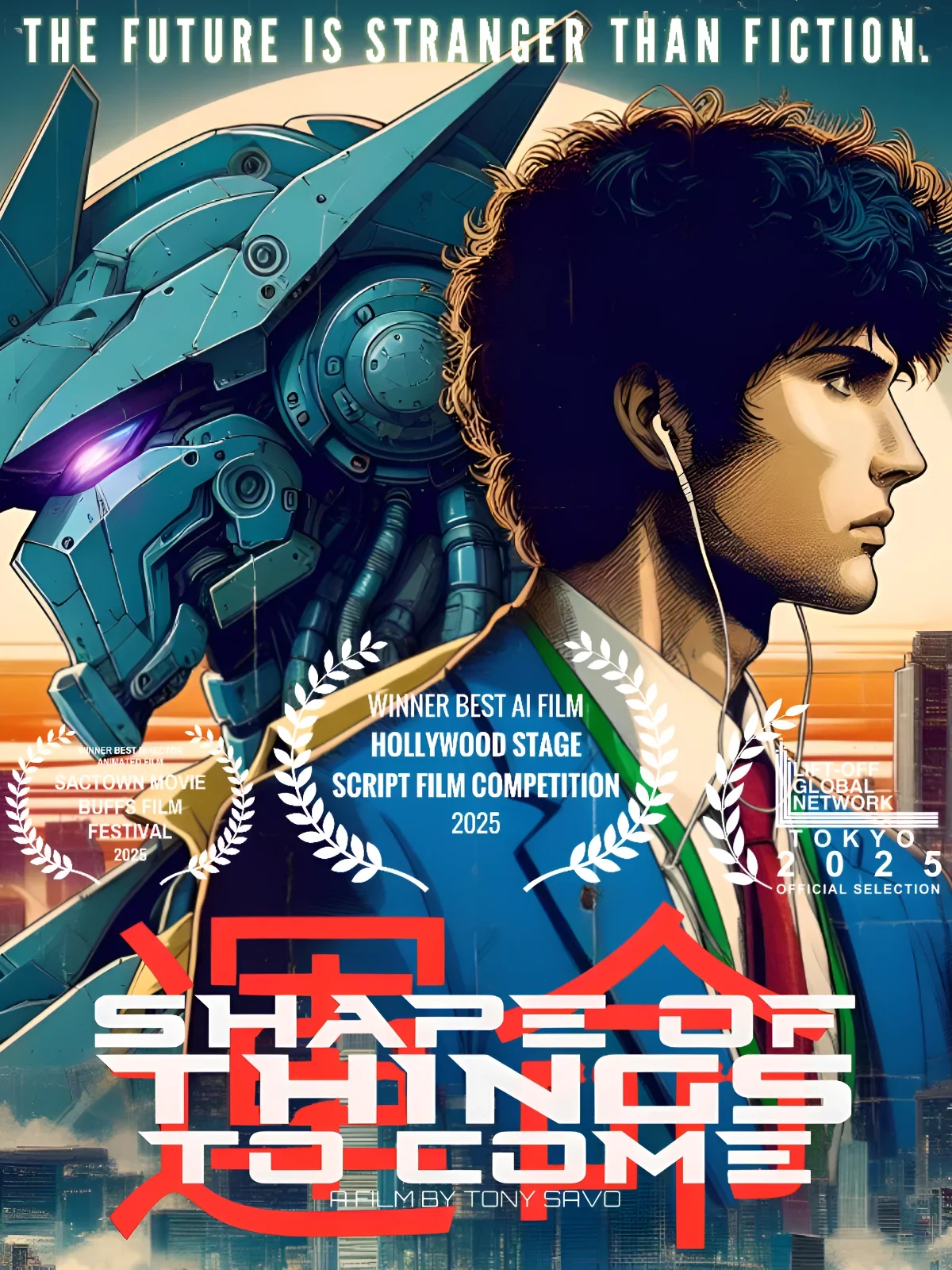Ever said something brilliant at a meeting only to watch your colleague get credit when they repeated it to the boss? That stinging moment when your words come back at you with someone else’s name attached? Tony Savo knows that feeling well – except his stage was a podcast, and the echo came from Hollywood royalty and Google executives.
On 16 May, the Sacramento-based filmmaker sat down for an interview about his groundbreaking sci-fi short ‘Shape of Things to Come’ – the first AI-generated film to premiere in IMAX. During the conversation, Savo made what seemed like a casual observation: ‘Film has always been a tech-based business. Ever since the Lumière brothers developed their machine to cast images on light, that was technology.’
Four days later, acclaimed director Darren Aronofsky stood on stage at Google’s I/O conference, announcing his new AI film partnership. His words? ‘Filmmaking has always been a technology based business…’ followed by a reference to the same Lumière brothers.
When Silicon Valley Comes Calling
Savo’s decade working in Silicon Valley – freelancing for Google, Meta and Singularity University – gave him a front-row seat to how ideas travel. What he witnessed after that podcast felt familiar yet surreal. Google’s VP of Society and Technology, Mira Lane began using Savo’s signature phrase about ‘exploring the intersection of technology and humanity’ in company materials. Google founder Sergey Brin echoed the same ‘tech-based business’ observation during his own I/O interview.
‘At first I thought Aronofsky or one of his assistants borrowed it after seeing the recent interview,’ Savo reflects. ‘I was flattered.’ As more tech leaders repeated his words, a different picture emerged. ‘That’s when I deduced it was more probable Google was simply following the action on the back-end.’
When Savo asked Google’s own Gemini AI ‘Tell me about Shape of Things to Come by Tony Savo’, the results surprised him. The system knew all about his film and its success. ‘As a filmmaker it’s great to be noticed. As a futurist it’s another notch in the belt.’
The IMAX Moment That Changes Everything
Getting an AI-generated film into IMAX isn’t just impressive – it’s revolutionary for anyone who’s ever felt locked out of the film world. Traditional cinema has always been about who you know, how much money you have and whether the gatekeepers think your story matters. Savo’s achievement proves that talented storytellers can now bypass those barriers entirely.

His film follows Tommy Timex, an ordinary Sacramento gig-worker thrust into Silicon Valley’s high-stakes world. It’s the kind of story that speaks to juggling multiple jobs, anyone who’s felt like an outsider trying to make it, or everyone who’s wondered what happens when regular people get access to extraordinary tools.
This democratisation of filmmaking through AI means you don’t need a Hollywood budget or industry connections to create something spectacular. Independent filmmakers are using AI across every stage of production – from scriptwriting and storyboarding to editing and visual effects.
The Curious Case of Borrowed Brilliance
There’s something both amusing and telling about watching major players adopt the language pioneered by independent creators. It’s not malicious – more like how fashion trends trickle up from street style to designer runways. It does highlight how big companies often move into spaces, absorb the credit and don’t always amplify the original voices.
This pattern isn’t unique to Savo’s experience. Independent filmmakers frequently find their approaches and insights echoed by larger organisations without attribution. Rather than feeling bitter, Savo sees it as validation: ‘In the ultra-competitive field of futurism, where insights and observations shape the trajectory of technological advancement, a futurist’s value is directly tied to the originality and impact of their predictions.’
What AI Filmmaking Actually Means for You
Forget the technical jargon – here’s what AI filmmaking really does: it gives you superpowers you didn’t know you needed. Think of it as having an incredibly talented film crew that works for free, never complains about long hours and can create visuals that would normally cost millions.
The tools work by understanding what you describe, then generating corresponding visuals, audio and even dialogue. You write ‘spaceship landing in desert at sunset’ and the AI creates that scene. You need background music that feels mysterious but hopeful? The AI composes it. Recent advances in AI cinematography have made video and audio integration increasingly seamless.
For those who’ve always had stories to tell but lacked the resources, connections or confidence to make films, this represents a creative revolution. No more waiting for someone else to green-light your idea or compromise your vision to fit someone else’s budget.
The hybrid approach many filmmakers are adopting combines traditional storytelling with AI-generated visual effects and backgrounds. This isn’t about replacing human creativity – it’s about amplifying it, making ambitious narratives possible with limited resources.
The Spotlight Is Big Enough for Everyone
As Savo’s film continues its festival run and major tech companies launch their AI initiatives, one thing becomes clear: the creative field has fundamentally changed. You don’t need a Hollywood sign-off to make something meaningful or be first with a brilliant idea.
The same democratising force that allowed Savo to create an IMAX-worthy film from Sacramento is available to anyone willing to experiment. While copyright concerns surrounding AI continue to evolve, the creative opportunities remain vast.
As Savo puts it, this moment represents ‘the power of independent filmmaking and the potential of AI technology’ working together. When your words get borrowed by the big players, at least you know you were saying something worth stealing.
Thinking of Trying It Yourself?
- Start simple: Pick one element – maybe background music or basic visual effects – rather than trying to AI-generate everything
- Learn the language: AI responds better to specific, descriptive prompts than vague requests
- Embrace the weird: AI sometimes creates unexpected results that end up being more interesting than what you originally planned
- Keep your voice: Use AI as a tool to amplify your unique perspective, not replace it
- Budget for experimentation: Many AI filmmaking tools offer free trials – perfect for testing ideas without commitment






